What is an AI Agent?
Agents are a way to automate lead and account research for your sales team. You can use them to simply answer questions about people or companies, and can use them to automatically qualify leads and accounts based on their research. There are a few ways of creating an agent:- Research agents
- Qualification agents
- AI agents on settings page
Research agents
You can use AI agents to answer questions about a person or account. Then you can show in a few places:- In the plays list
- In the composer
- On the people/account pages
Best Practice: Design each research agent to answer one specific question. Instead of creating a single agent with multiple questions, create separate agents for each distinct data point you need. This produces more accurate and reliable results.
Displaying research in the plays list
You can add a research agent to the plays list by clicking onAdd AI Agent in the top right corner of the plays list.
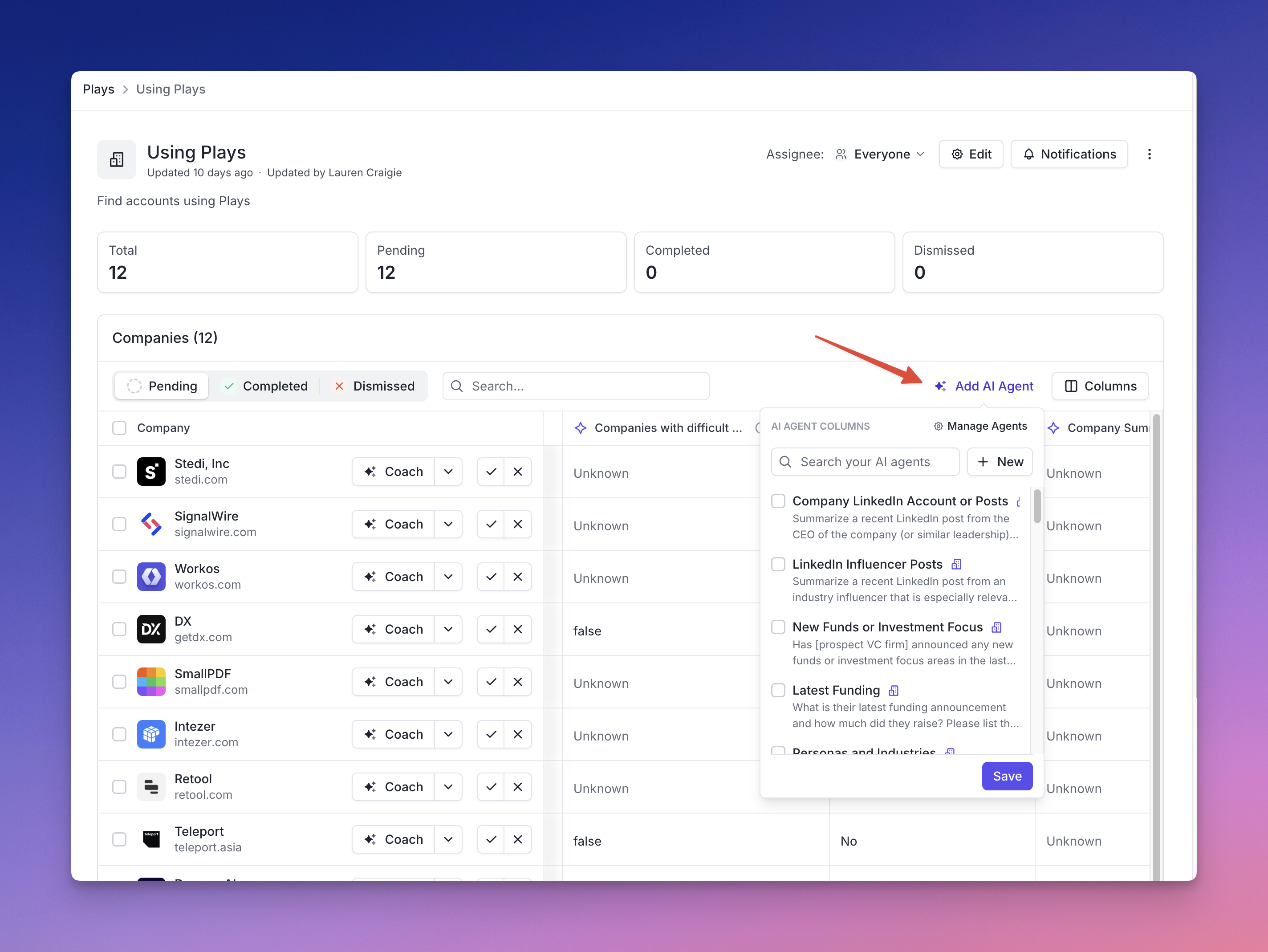
Using AI Research Agents with Coach
After adding AI Research Agents to a Play, you can use them in Koala Coach. You can select the relevant research knowledge to write personalized emails, LinkedIn messages, and call scripts.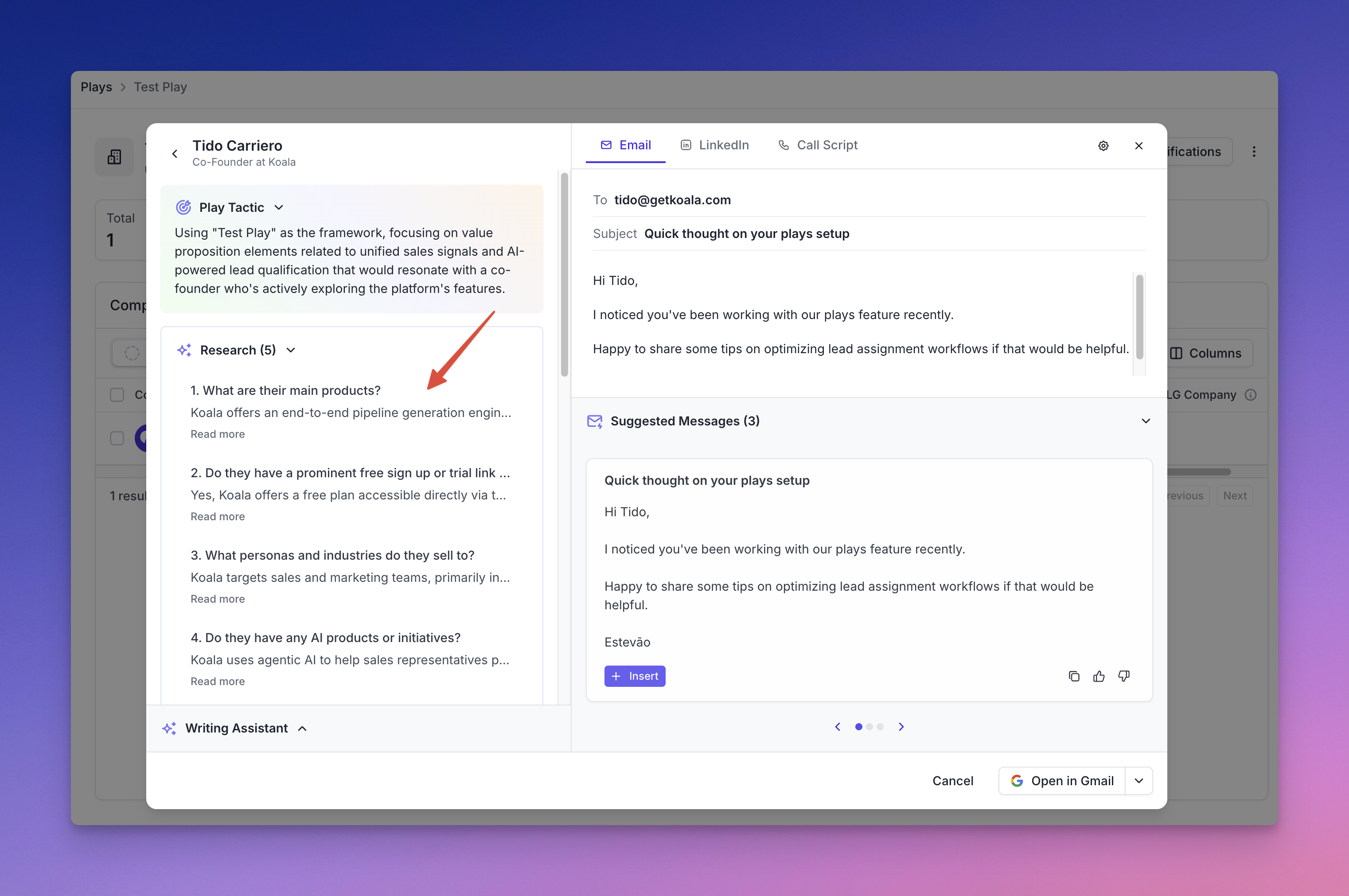
Displaying research on people/account pages
Additionally, you can view research content on people and account pages.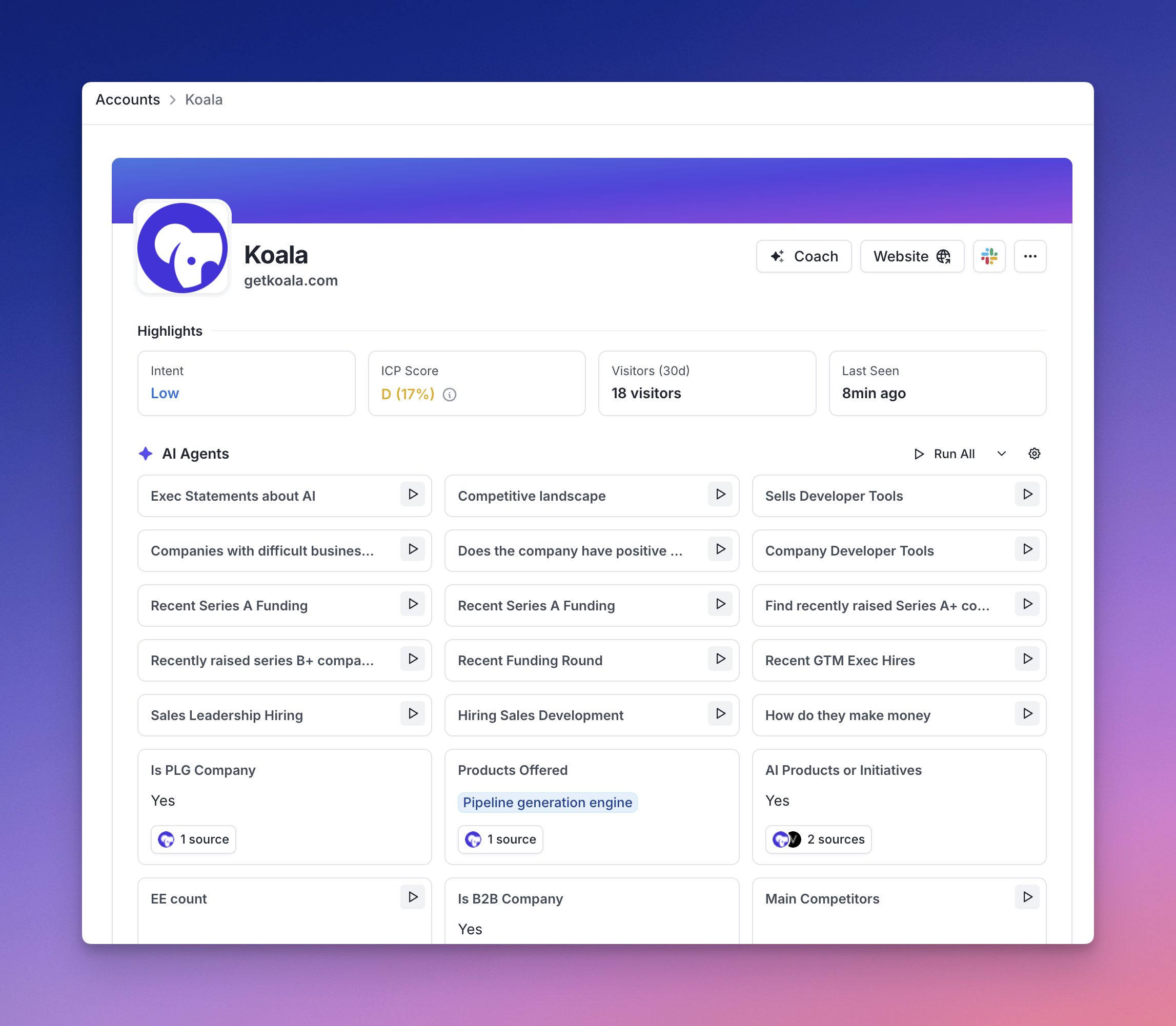
Qualification agents
You can use a qualification agent to automatically qualify leads and accounts based on research.Best Practice: Design each qualification agent to answer one specific question. You can combine multiple qualification agents to create comprehensive qualification criteria, which produces better results than trying to ask too many things with a single agent.
Creating an agent
To create an agent you can use for qualification, select or create a new agent in the third step of theCreate New Play flow:
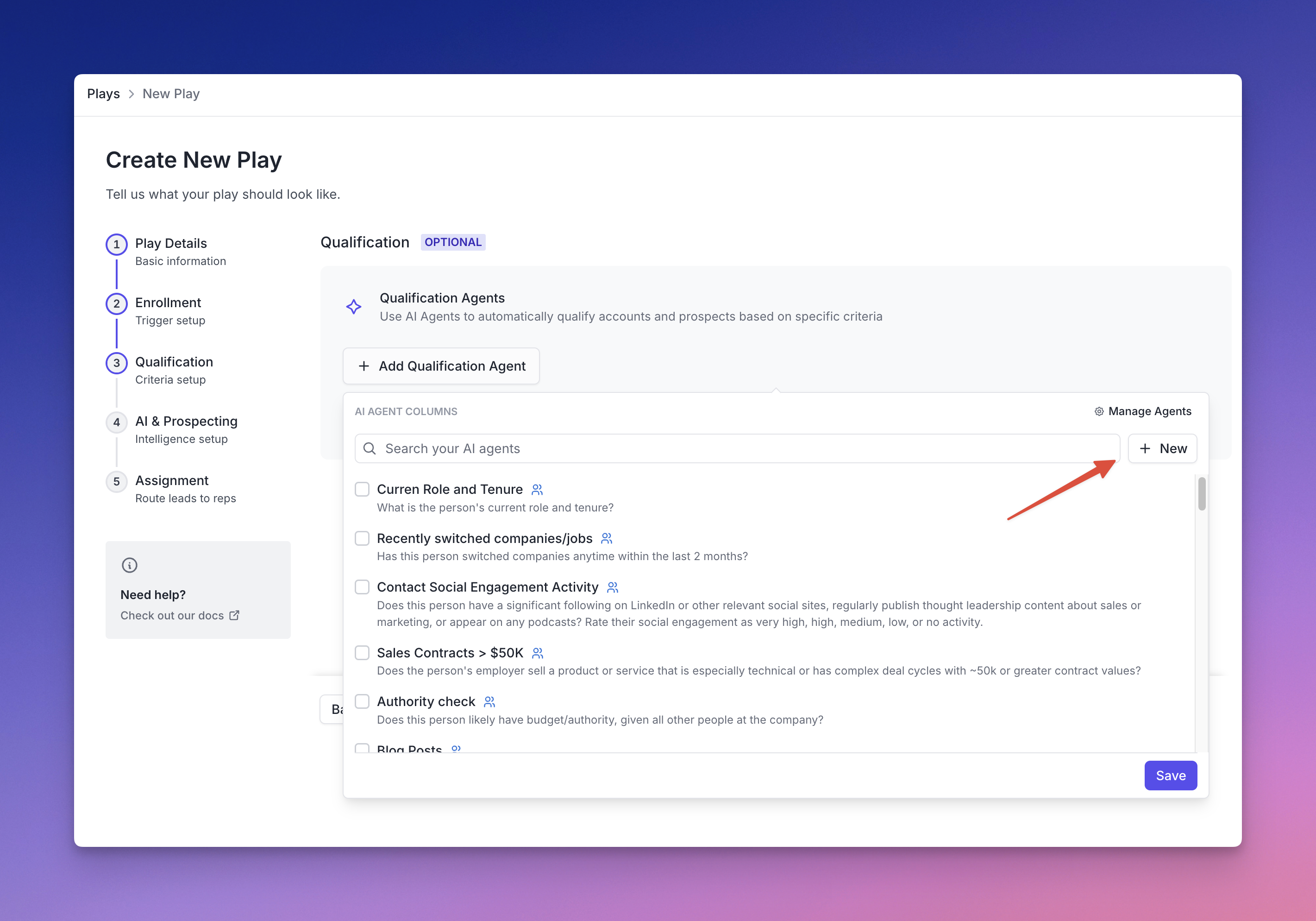 To create an AI agent, you’ll need to:
To create an AI agent, you’ll need to:
- Agent goal - Define the purpose of your agent (required)
- Question/Prompt - Ask the specific question you want answered (required)
- Research type - Choose between “Companies” or “People” (required)
- Research individual people - Option for people-focused research
- Response Type - Select how the AI should format its answer
- Advanced Options - Additional configuration settings
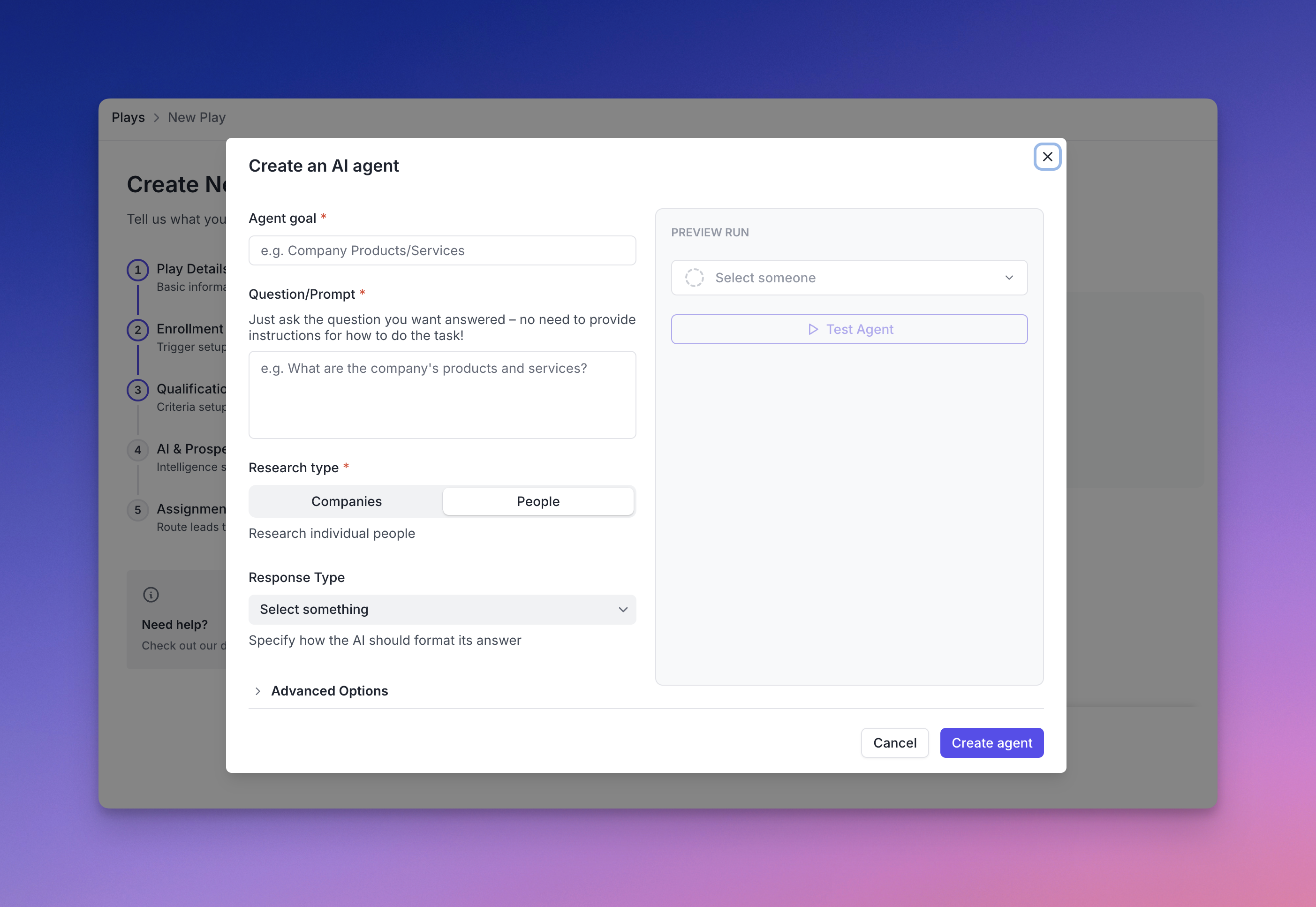
For qualification agents, the Response Type is particularly important. Based on those you’ll set up criteria for qualifying leads and accounts.
Qualification criteria and response types
Take the following example: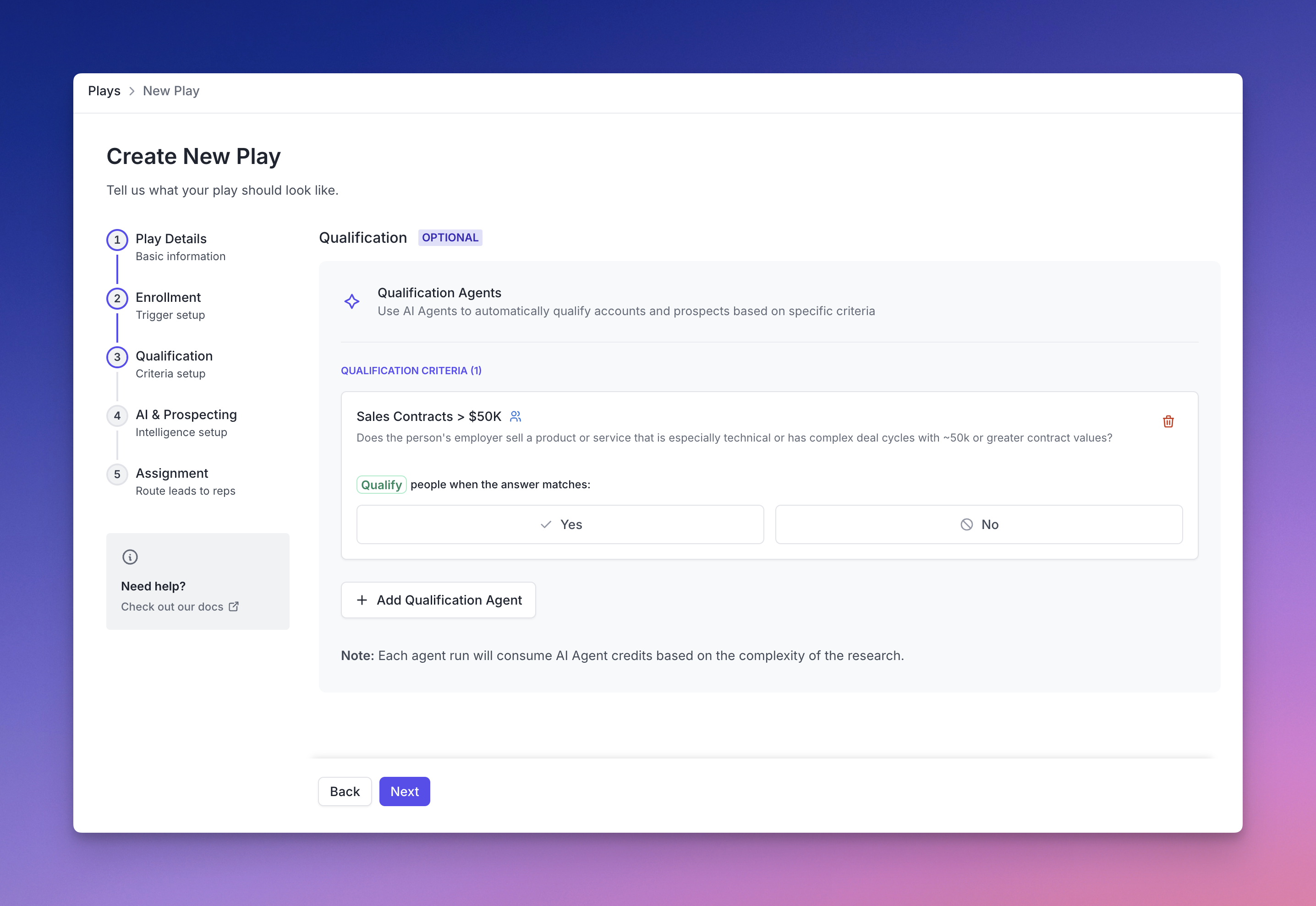 The agent named
The agent named Sales Contracts > $50k has response type Boolean, which means that the agent will only return a Yes or No answer.
You can then set up a rule to qualify a lead or account based on that answer.
Response types
We currently support the following response types:
- String: A text response for open-ended answers
- Number: A numerical value without currency formatting
- Currency: A monetary amount with the appropriate currency symbol
- Percent: A percentage value
- Boolean: A Yes/No or True/False response
- Date: A calendar date
- List: Multiple items returned as a list
- Picklist: Selection from predefined options
AI Agent best practices
For the best results with your AI agents, follow these guidelines:Prompting best practices
- Be specific and concise: Clearly state what information you need in simple language.
- Focus on one question: Each agent should answer one specific question rather than multiple questions.
- Include context: Provide relevant context about why you need this information.
- Use clear parameters: Specify any constraints or requirements (e.g., “only companies with over 100 employees”).
Model selection
Koala supports multiple AI models, each with different strengths. Choose the right model based on your research needs and complexity requirements:| Model | Suggested Use |
|---|---|
| GPT-4o | Complex tasks requiring nuanced research and better fact checking. Best for research that needs deeper reasoning. Use this if in doubt. |
| GPT-4o-mini | Great for most tasks - recommended for 90% of use cases. Delivers faster responses while maintaining quality. |
| Claude 3.5 Sonnet | Excellent for complex questions requiring sophisticated reasoning when searching the web. |
| Claude 3.5 Haiku | A well-balanced model suitable for most web search tasks, offering a good mix of speed and quality. |
| Perplexity | Provides fast, straightforward answers from web searches. Good for quick research needs. |
| Perplexity Reasoning (DeepSeek R1) | Latest Perplexity model backed by DeepSeek R1, providing more sources and reasoning. |
| Perplexity Pro | For complex questions requiring deeper research, offering more comprehensive sources and analysis. |
Examples of effective agent questions:
- ✅ “Does this company have a sales team larger than 10 people?”
- ✅ “What is the company’s annual revenue?”
- ✅ “Is this person a decision maker for purchasing software?”
- ❌ “Tell me about the company’s revenue, sales team, tech stack, and recent news.” (Too broad)
Managing agents
You can manage your agents in theAgents section of the settings page.
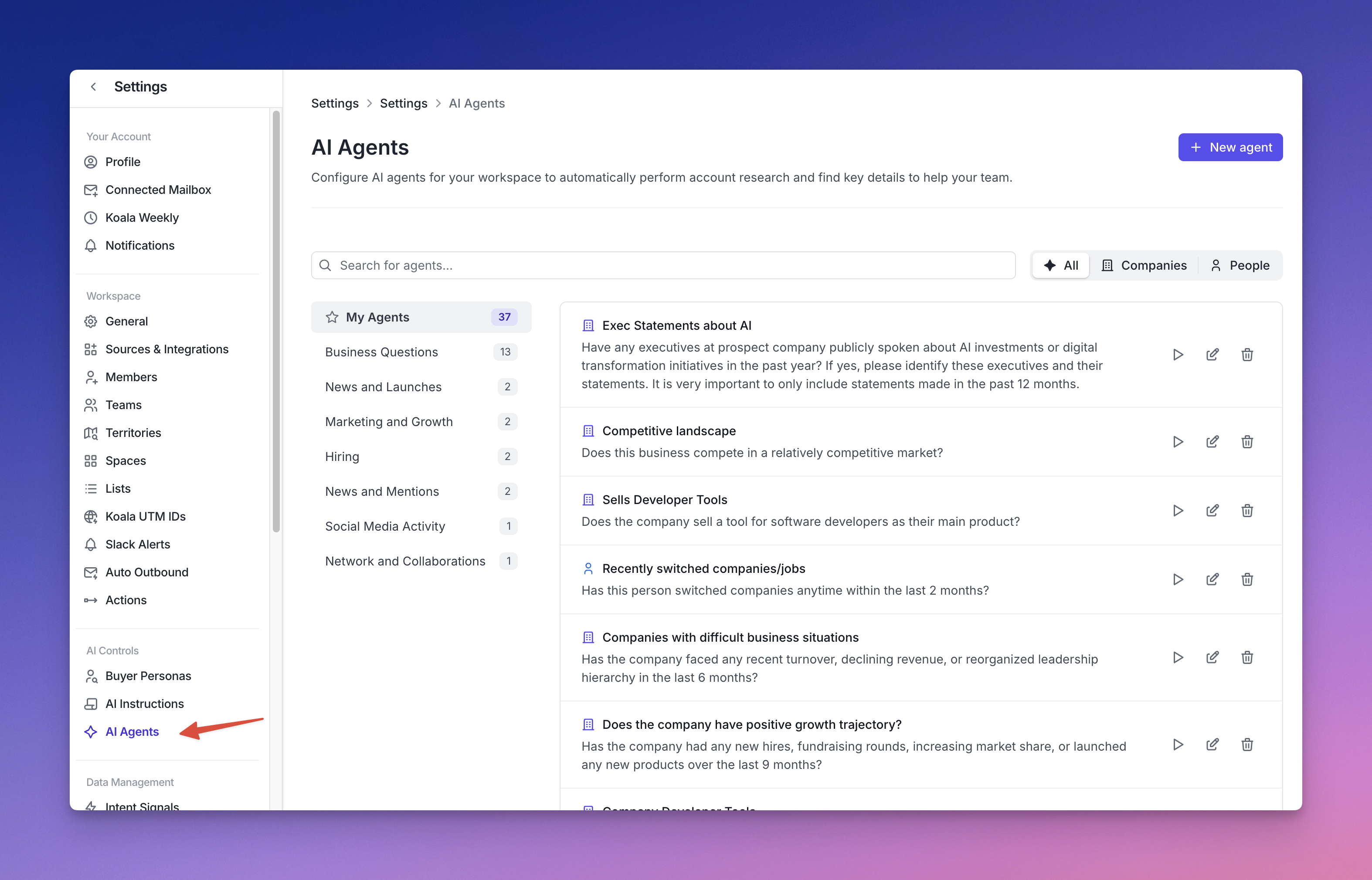 Here you can create, test, edit, and delete agents.
Here you can create, test, edit, and delete agents.
